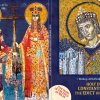Col. Paige was born in a small western Pennsylvania town of Charleroi, near the Ohio state line. His parents were Serb immigrants who came to the U.S. around the turn of the 20th century from the Serbian Vojna Krajina, which was back then a part of the Austro-Hungarian Empire. . One of the Paige family's proud possessions was a painting which depicted a Serbian soldier on a white horse at the Battle of Kosovo (1389). "It had the word 'Kosovo' inscribed at the bottom," Col. Paige recalls. Unfortunately, the painting was destroyed in a house fire, along with many other family treasures. But the spirit of Kosovo lived on.
Paige got a battlefield commission to second lieutenant and was awarded the Purple Heart, the Presidential Unit Citation, and the Victory Medal, in addition to the Congressional Medal of Honor.
All 33 men in Paige's unit were either killed or wounded during a Japanese attack. But Paige continued to man his machine gun until reinforcements arrived, preventing a regiment of between 2,500 to 3,000 Japanese troops from advancing.
Col. Paige was encouraged to write his memoirs by his very good friend, the Oscarwinning Hollywood star, Lee Marvin. When the soldier confessed to the actor that he was afraid such a book may seem as if he were patting himself on the back, Marvin replied: "How will we know if you don't tell us? Just sit down and write it out like it was." Col. Paige did. And now we know. A Marine Name Mitch is a story of a 'living legend,' as Gen. Bedard put it.





